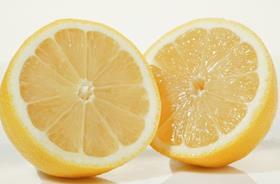
It is almost certain that entry to South Korea for South African lemons and grapefruit will be granted soon, sources say.
The sudden news of extended entry into Korea resulted in a flurry of activity in the South African citrus industry. The Citrus Growers’ Association (CGA) this week issued an urgent appeal to growers who intend shipping to South Korea to register their PUC and orchards with the South African Department of Agriculture, Forestry and Fisheries (DAFF). The deadline for registrations expires on 30 March.
Given the short deadline and the fact that the wheels of the South African industry do not often turn quickly, it will be some time before it is clear just how many growers and exporters have taken advantage of the registration process.
The CGA says that the proposed protocol for lemons and grapefruit to South Korea is the same as for oranges. This means that there is a mandatory period of cold treatment of 24 days at -0.6oC. All PUCs and orchards needed to be registered with DAFF and that those who do not meet tomorrow’s deadline will miss the boat for this season.
The cold treatment period for shipments of grapefruit and lemons is the same as the protocol for South African citrus, which are exported to the US. This requirement is particularly harsh for citrus fruit, which is normally shipped at higher temperatures than apples, pears, stonefruit and table grapes.
Outspoken Citrusdal citrus grower, Gerrit van der Merwe, from ALG Estates, who is playing a key role in coordinated citrus shipments to the USA, previously warned that countries in the Asia and the Middle East are increasingly copying the US protocols when setting up their own entry regulations.
“Complying with the US protocol is extremely tough and will make things difficult for South African growers and exporters who are not used to these disciplines,” Mr Van der Merwe has said.
The protracted cold treatment also increases the risk for growers and exporters because failure of the sterilisation period, due to malfunction or human error, will mean that the process will have to start all over again. This could result in huge losses to growers.
Marine cargo insurance specialist, Hardy Sader-Diers of SAVE in Germany, says South African growers and exporters are increasingly making use of the company’s special sterri-cover clauses to cover themselves for the increased risk. “We are flexible and offer this cover only to markets where our clients really need them and this is very popular.”
SAVE has made great strides since entering South Africa in 2006 with marine cover solutions, which were not previously available in the South African market.
Industry leaders in South Africa say that the risk profile of exporters is increasing every year. It is not only problems with technical equipment which can result in loss of product quality and which needs to be covered, but also threats from more modern day incidents such as piracy and strikes which are making things extremely difficult.
The tough protocol is one of the reasons why many South African citrus and table grape exporters to China still use the ‘grey channel’ rather than following the official channels which is available under the official import protocol.



